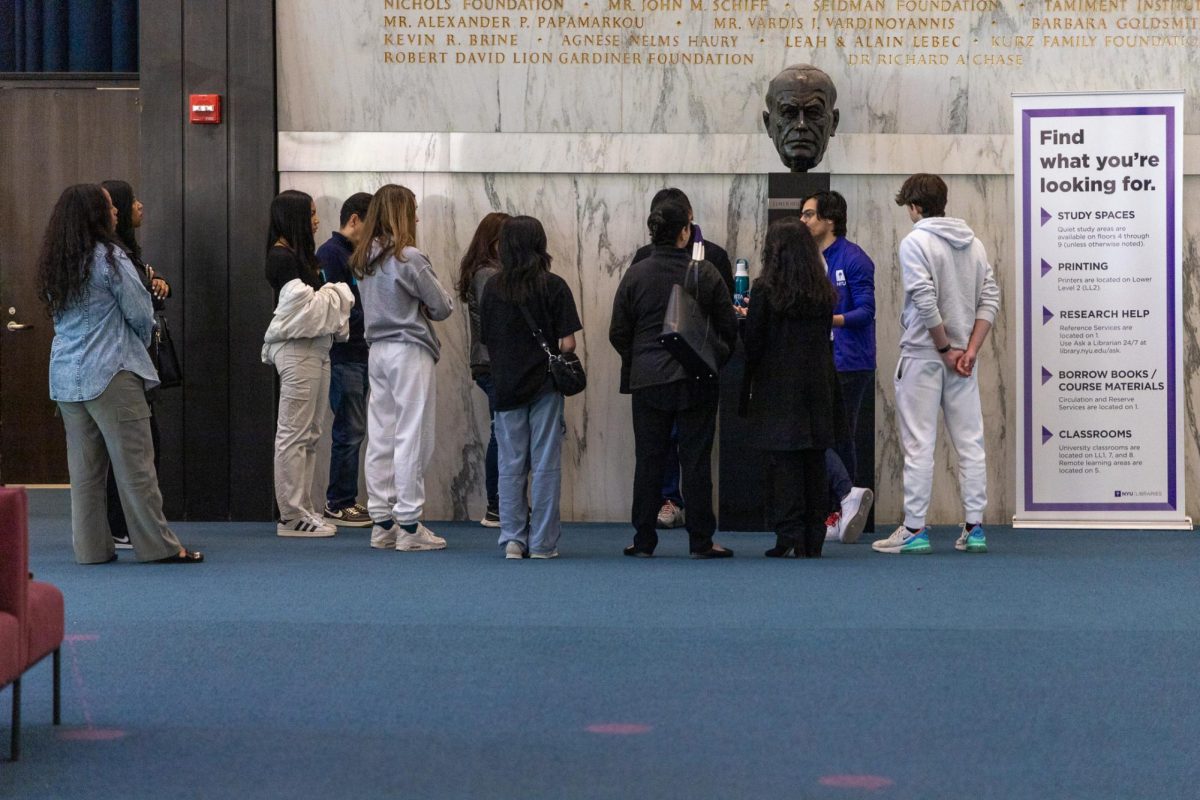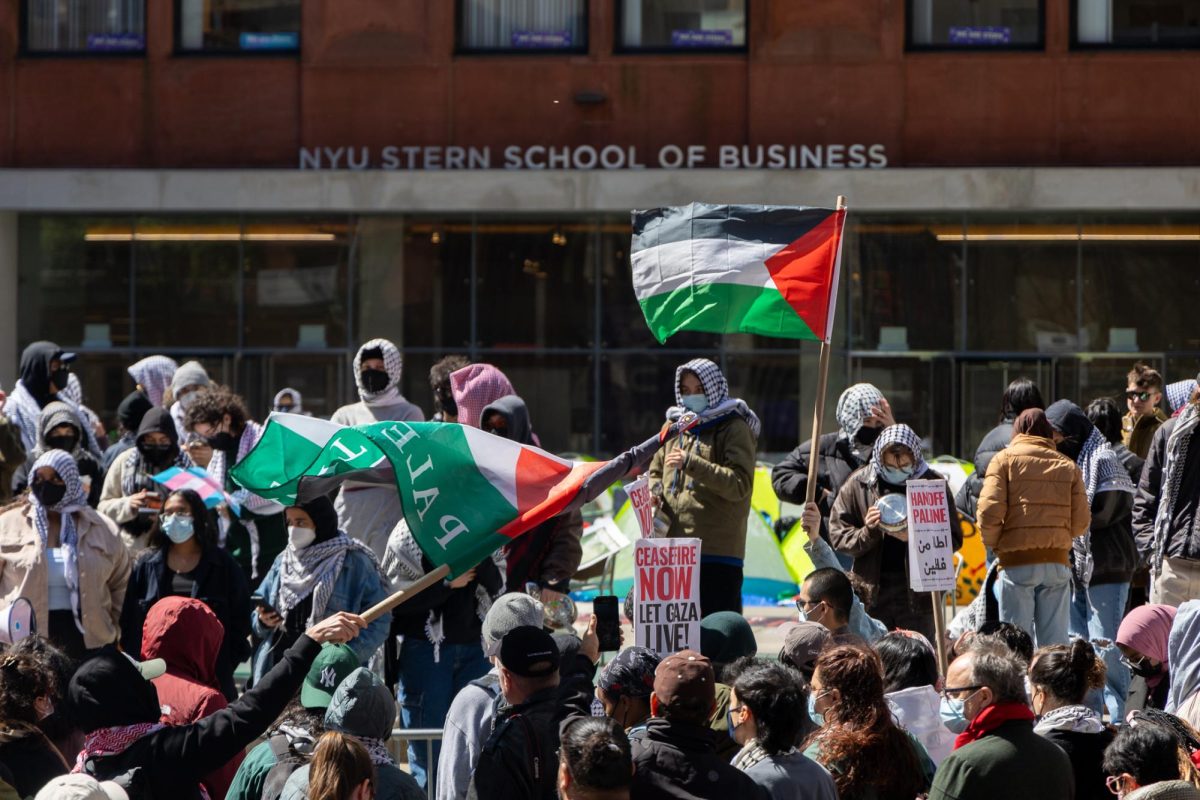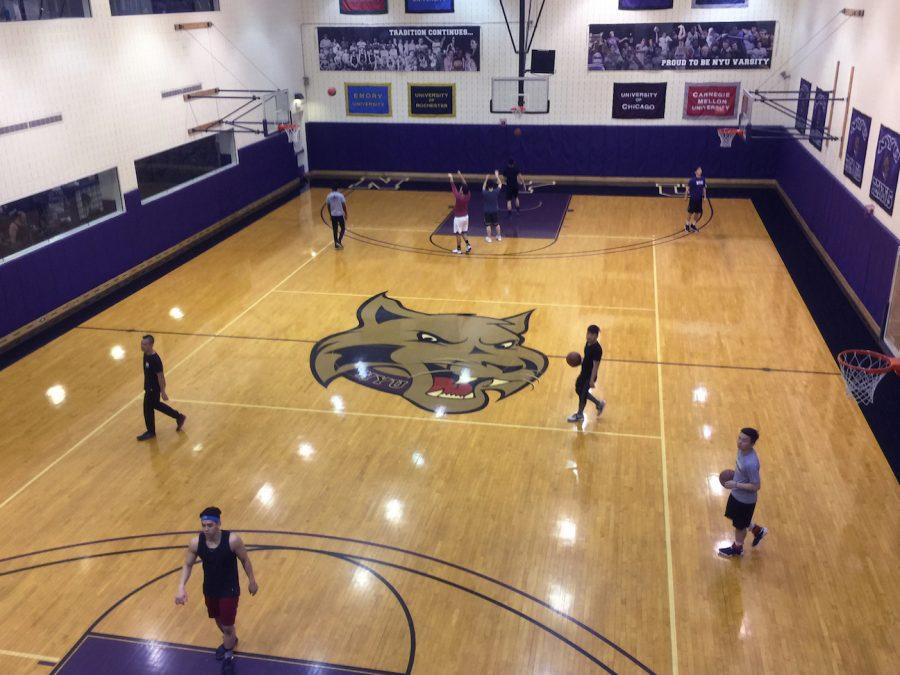Go Hard or Go Home: Why Division III?
Although NYU has a division III athletic program, it can be the perfect place for student athletes, as there is a strong focus on academics.
February 21, 2017
Most kids who grow up playing sports say they want to be a professional athlete, and most professional athletes come from well-known Division I programs. Big Division I schools have a heavy athletic culture, and student-athletes at these universities tend to focus more on athletics than academics — some athletes won’t even graduate, because major sports leagues like the MLB, NFL or NBA draft them early.
NYU is a prestigious university with a Division III athletic program — excluding its Division I fencing program — and for the most part does not give out athletic scholarships. So why play a sport at NYU if an athletic scholarship and a steeped athletic culture are not incentives?
For NYU student-athletes, the answer is simple — NYU offers the chance to get a good education while playing competitive sports. Although NYU is not as well known for its athletic programs as it is for its exceptional business and drama schools, its athletic community continues to grow.
SPS junior Cassidy Fontana has played basketball since third grade. During college recruitment, she knew she wanted competitive academic opportunities for a future career in real estate and the opportunity to play basketball.
“Undergraduate real estate programs are not very common, so when I heard about this [NYU Real Estate] program, I was pretty much sold,” Fontana said. “Not only would I be surrounded by such knowledgeable, compassionate coaches, I would be playing in the toughest Division III conference in the country and have the opportunity to travel to places I would never think I would go to in my lifetime to play these teams.”
As a member of the Smart Women’s Securities Club and Student-Athlete Advisory Club, Fontana was not only able to play in the NCAA tournament as a freshman and sophomore, but she was also able to play Italian national teams on an NYU global program with the basketball team. This was an opportunity she would not receive if not for NYU athletics.
GLS freshman and women’s soccer player Isabelle Turner felt similarly. Having played soccer since the age of four, she decided she wanted to play at a collegiate level when she was a sophomore in high school. Like any athlete, she was set on the most competitive Division I programs until one conversation changed her perspective.
“It was not until my dad convinced me to look at the bigger picture,” Turner said. “College is about getting a good education. With Division III schools, they offer more of a balance between academics and athletics than a lot of Division I or II schools do.”
For GLS sophomore baseball player Eli Edwards, it was the feel of a larger school setting that sold him.
“I got the best of both worlds,” Edwards said. “NYU was the only school I applied to for this reason. It would be cool to have bigger crowds at our games, but just being able to play competitive college baseball is good enough for me.”
With the basketball teams playing at Hunter College, softball and soccer playing in the Bronx and baseball playing at Coney Island, an athletic community and dedicated fans are sometimes hard to come by.
Senior and wrestler John Messinger has loved his time as a part of the Violet family but laments the lack of involvement from the rest of the student body.
“I feel as if NYU Athletics is a great community within itself, but I would love to see the rest of the school get involved,” Messinger said. “Having more spectators just makes everything more exciting, especially for a sport like wrestling.”
As a neural science major, Messinger plans to take a year or two off to work in one of the university hospitals to prepare for medical school.
NYU student-athletes see the value in having both a great education and the opportunity to play competitive athletics. NYU provides these students with resources, opportunities and networks that prepare them for life after college.
NYU will send its outstanding Division III athletes off to become actors, entrepreneurs, doctors and maybe even professional athletes. This is in contrast to athletes at Division I schools; very few Division I athletes further their careers in fields other than athletics.
“For me it, [NYU] was the perfect balance of athletics and academics,” Messinger said.
A version of this article appeared in the Tuesday, Feb. 21 print edition. Email Diana King at [email protected].














































































































































